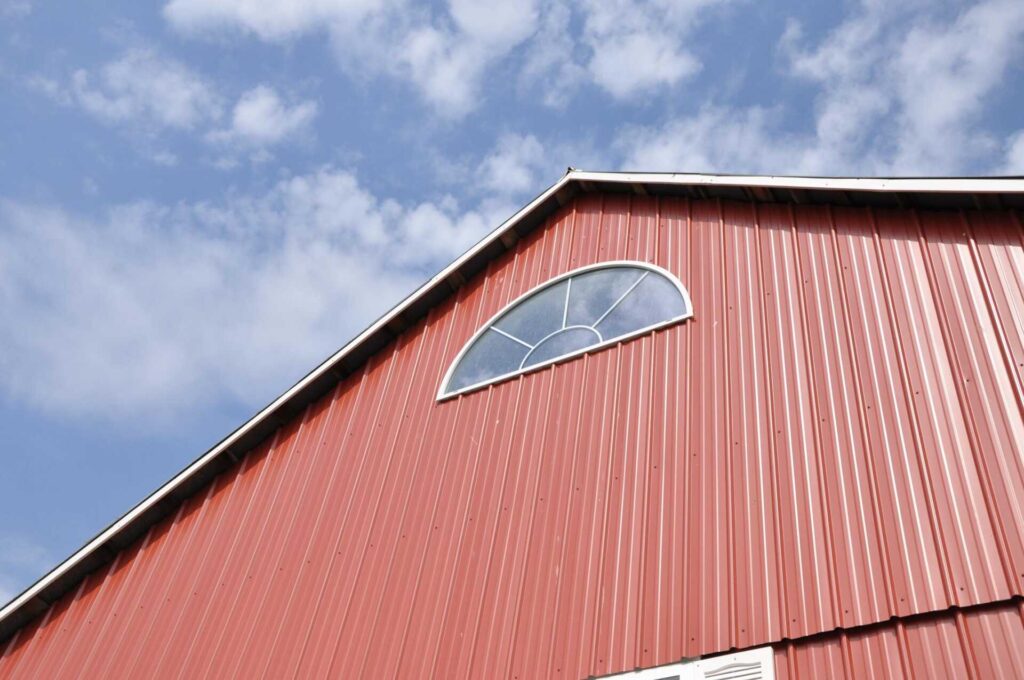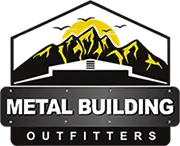
Contents
If you’ve been thinking about ways to improve the energy efficiency of your metal building, you might come across a versatile solution that addresses multiple concerns at once. Insulated metal panels have gained traction for their ability to provide insulation and also play a crucial role in reducing energy costs. However, another energy-efficient solution often ignored can bring about significant benefits to metal structures. Curious to uncover this hidden gem and its impact on energy conservation in metal buildings? Stay tuned to discover a key element that could transform the way you approach energy efficiency in your metal building.
Key Takeaways
- Solar panel integration for renewable energy and reduced reliance on traditional power grids.
- Cool roofing systems with reflective coatings for lower indoor temperatures and energy savings.
- LED lighting solutions for reduced energy consumption and longer lifespan.
- Insulated metal panels for enhanced thermal performance and cost savings.
- Energy-efficient HVAC systems with geothermal heating and intelligent thermostats.
Solar Panel Integration
Consider integrating solar panels onto the roof of your metal building to harness renewable energy efficiently. Solar panel efficiency pertains to the amount of sunlight that can be converted into usable electricity. By utilizing solar panels, you can tap into renewable energy sources, reducing your reliance on traditional power grids and lowering your carbon footprint.
Solar panels function by capturing sunlight through photovoltaic cells, which then convert the sunlight into electricity. The effectiveness of solar panels has improved significantly in recent years, making them a practical and cost-effective option for metal buildings. When integrated into the roof of your building, solar panels can produce electricity to power your operations, lighting, and HVAC systems.
To maximize solar panel efficiency, it’s crucial to ensure that your panels are installed in a location that receives ample sunlight throughout the day. Moreover, regular maintenance and cleaning of the panels can help enhance their performance. By harnessing the power of solar energy, you can’t just save on energy costs but also contribute to a more environmentally friendly ecosystem.
Incorporating solar panels into your metal building is a pragmatic way to embrace renewable energy sources and improve the overall energy efficiency of your facility. Consider consulting with a professional to determine the most suitable solar panel system for your building’s specific requirements.
Cool Roofing Systems
Integrating cool roofing systems into your metal building can effectively reduce heat absorption and improve energy efficiency. By applying reflective coatings on the roof’s surface, these systems can help lower indoor temperatures, resulting in significant energy savings. Additionally, cool roofing systems offer maintenance benefits and contribute to the sustainability of your building.
Here is a table summarizing the key advantages of cool roofing systems:
| Advantages | Description |
|---|---|
| Energy Savings | Reflective coatings reduce heat absorption, leading to lower energy costs. |
| Maintenance Benefits | Require less maintenance compared to traditional roofing materials. |
| Sustainability | Enhance the overall sustainability of your metal building. |
LED Lighting Solutions
Improving energy efficiency in metal buildings can be achieved through the implementation of LED lighting solutions. LED lighting is a highly efficient lighting option that can greatly reduce energy consumption compared to traditional lighting systems. By switching to LED lights, you can lower energy costs while also reducing maintenance needs due to their longer lifespan.
To further enhance the energy efficiency of your metal building, consider incorporating lighting controls. Lighting controls such as occupancy sensors and timers help ensure that lights are only used when needed, preventing unnecessary energy waste. These controls can be integrated into your LED lighting system to maximize efficiency.
Conducting energy audits is another essential step in optimizing your lighting solutions. Energy audits help identify areas where energy is being wasted and provide recommendations for improvement. By understanding your building’s energy usage patterns, you can tailor your LED lighting solutions and lighting controls to meet specific energy efficiency goals.
Insulated Metal Panels
When considering energy-efficient solutions for metal buildings, utilizing insulated metal panels can greatly enhance thermal performance and reduce energy consumption.
Insulated metal panels consist of an insulating foam core sandwiched between two metal panels, providing a high level of thermal resistance. These panels help maintain consistent indoor temperatures by minimizing heat transfer, thereby reducing the workload on heating and cooling systems.
The thermal performance of insulated metal panels is exceptional, offering superior insulation compared to traditional building materials. This enhanced insulation helps regulate indoor temperatures, keeping the building cooler in summer and warmer in winter. By effectively controlling heat flow, insulated metal panels contribute to significant energy savings throughout the year.
In addition to improved thermal performance, insulated metal panels also offer cost savings in the long run. The energy efficiency they provide leads to lower utility bills due to reduced heating and cooling demands. Furthermore, the durability and low maintenance requirements of insulated metal panels result in decreased operational costs over time.
Energy-Efficient HVAC Systems
Utilizing energy-saving HVAC systems can reduce energy consumption and improve thermal comfort in metal buildings. When considering HVAC options for your metal building, technologies like geothermal heating and energy recovery ventilation can greatly enhance energy efficiency.
Geothermal heating utilizes the stable temperature of the ground to provide heating and cooling, offering an eco-friendly solution that reduces reliance on traditional energy sources.
Energy recovery ventilation systems work by transferring heat between the incoming and outgoing air, ensuring that the building maintains a consistent temperature without overworking the HVAC system. This process helps to minimize energy waste and enhance the building’s overall energy performance.
Incorporating intelligent thermostats into your HVAC system allows for precise temperature control and automated adjustments, ensuring that energy is only used when necessary. Smart thermostats can learn your preferences and adjust settings accordingly, promoting energy savings without sacrificing comfort.
Ductless HVAC systems are another energy-saving option for metal buildings. By eliminating the need for ductwork, these systems reduce energy losses associated with traditional ducted systems, providing targeted heating and cooling where needed most.
Summary
So there you have it – insulated metal panels are the top energy-efficient solution for metal buildings. Say goodbye to high energy bills and hello to a comfortable indoor environment.
It’s like wrapping your building in a cozy blanket, keeping the heat in and the cold out.
Make the smart choice for your metal building and invest in insulated metal panels today.
Recent Posts
What Are Your Options for Agricultural Metal Storage?
When you’re exploring agricultural metal storage options, it’s crucial to take into account the various
How to Choose Versatile Agricultural Metal Structures
When you’re considering versatile agricultural metal structures, it’s essential to start by evaluating your specific
Analyzing Costs of Custom Metal Buildings: A Guide
When it comes to custom metal buildings, costs can be like a puzzle waiting to


